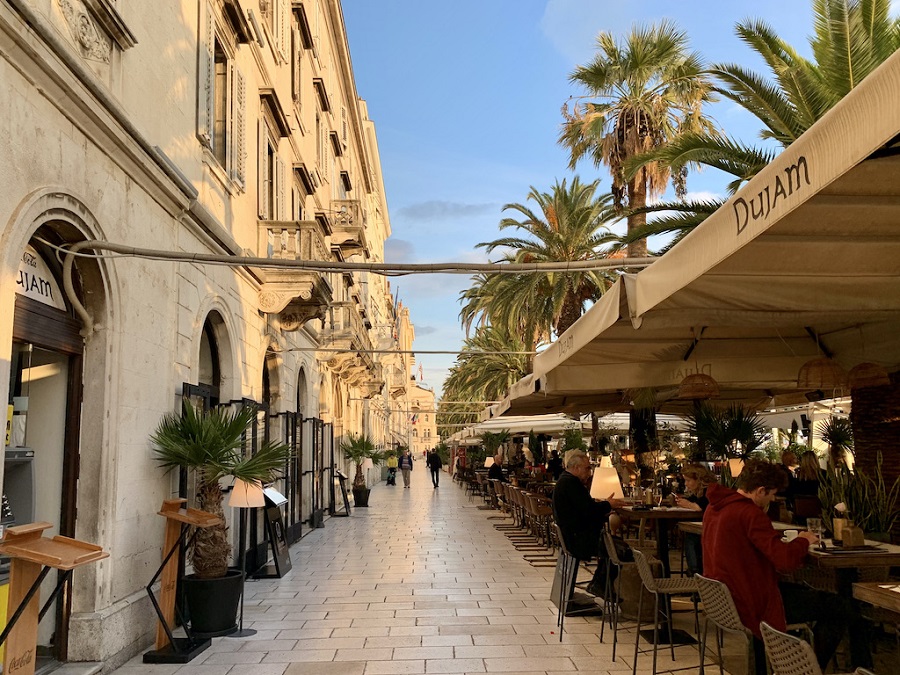Magnitude 3.2 Aftershock Rocks Petrinja Area
ZAGREB, 2 February 2021 - Croatia's Seismological Survey said on Tuesday that a magnitude 3.2 earthquake was registered at 2.43 a.m. with the epicentre 7 km south of Petrinja.
The area was struck by a magnitude 6.2 tremor on 29 December which killed seven people and caused enormous damage.
Kristijan Sindik to Run 7 Marathons in 7 Days for KBC Split Pediatric Oncology Department
February 2, 2021 - Famous Split marathoner Kristijan Sindik will run from Split to Tivat for the KBC Split Department of Pediatric Oncology, completing seven marathons along the way.
Running a marathon is one of the most difficult athletic disciplines, with roots that date back to Greek soldier Philippides, who ran from Marathon to Athens to announce Greece's victory over the Persians.
Marathons today boast 42,195 kilometers, and one long-distance runner from Split - Kristijan Sindik - is preparing for a unique venture on Thursday, February 4, World Cancer Day, reports Dalmacija Danas.
Namely, Sindik plans to run the distance from Split to Tivat in seven days, equivalent to one marathon a day, all for the noble goal of raising funds for the KBC Split Department of Pediatric Oncology.
The race consists of seven sections, starting from the Marjan Gate in Split. Stations will mark where 42 km is achieved each day. Kristijan and the other runners will stay at each station overnight to rest and gather strength for the next marathon. The team will run Ruskamen, Drašnica, Ploče, Ston, Orašac, Čilipi, and the grand finale on the Pine waterfront in Tivat.
"As a former cancer patient, I know how difficult it is to fight malignant diseases, and it is challenging when you are a child, when you should be playing, not going to chemotherapy. As a current marathoner, I felt I needed to do something for the Pediatric Oncology Department of KBC Split and all the brave little heroes fighting malignant diseases. This idea has been stirring inside me for a long time, and missing the sports activities that I usually have professionally, allowed me to realize this project this year," said Kristijan Sindik, runner and leader of the Split Marathon.
This commendable humanitarian action is designed so that interested donors buy kilometers on the route. The minimum price of one kilometer is 100 kuna or 15 euros, and 295 kilometers are available. All interested participants in this action can donate funds directly by payment to the account of the KBC Split Pediatric Oncology: IBAN: HR1424070003106794371, OTP banka d.d. Split.
The running action was recognized by other runners, triathletes, and athletes, and Kristijan will be joined by three famous triathletes: Rikardo Kuhar, Ante Bebić, and Bruno Grgurević. Support will also be given at the start by Olympian Igor Boraska and Hajduk captain Mijo Caktaš.
The official race starts on Thursday, February 4, 2021, at 7:00 am at the Marjan Gate, and entry into the finish line is expected on Wednesday, February 10, 2021, on the Pine waterfront in Tivat. You can follow all the details and the course of the action on the Facebook page Golden Ribbon race - 7 marathons in 7 days.
To read more about sport in Croatia, follow TCN’s dedicated page.
Jutarnji List: Croatian Cafes Open on Monday 15 February (and Gyms too)?
February 2, 2021 – The wait is over! In less than two weeks, Croatian cafes and gyms will open, if infection numbers continue on their current downward trajectory
With the spring season just around the corner, people will soon be able to once again enjoy coffee on the sun-filled daytime terraces of Croatian cafes. If Coronavirus infection numbers continue on their current downward trajectory, Croatian cafes and gyms will open on Monday 15 February. All businesses will still have to operate under strict epidemiological measures.
Deputy Prime Minister and the Chief of Staff, Davor Božinović, spoke about the forthcoming concessions on Croatian cafes and gyms, but a fuller picture of how the concessions will actually look was discovered unofficially by Croatian daily Jutarnji List. It was published in the evening of Monday 1st February 2021. The good news soon travelled across Croatia. It will come as a great relief to many independent business owners who have not been allowed to operate.
Business owners have been increasingly on edge over recent weeks, with protest openings of Croatian cafes and gyms threatened to take place in defiance of the current ban on operations (indeed, some did). Owners of Croatian cafes were particularly irked by the seeming inconsistencies in current measures – fast food outlets, gas service stations and bakeries were all permitted to sell coffee to go. People took advantage of this and thereafter congregated on the streets outside such businesses to enjoy their drinks. But, Croatian cafes were still not permitted to service people wishing to drink on outside terraces in almost exactly the same manner.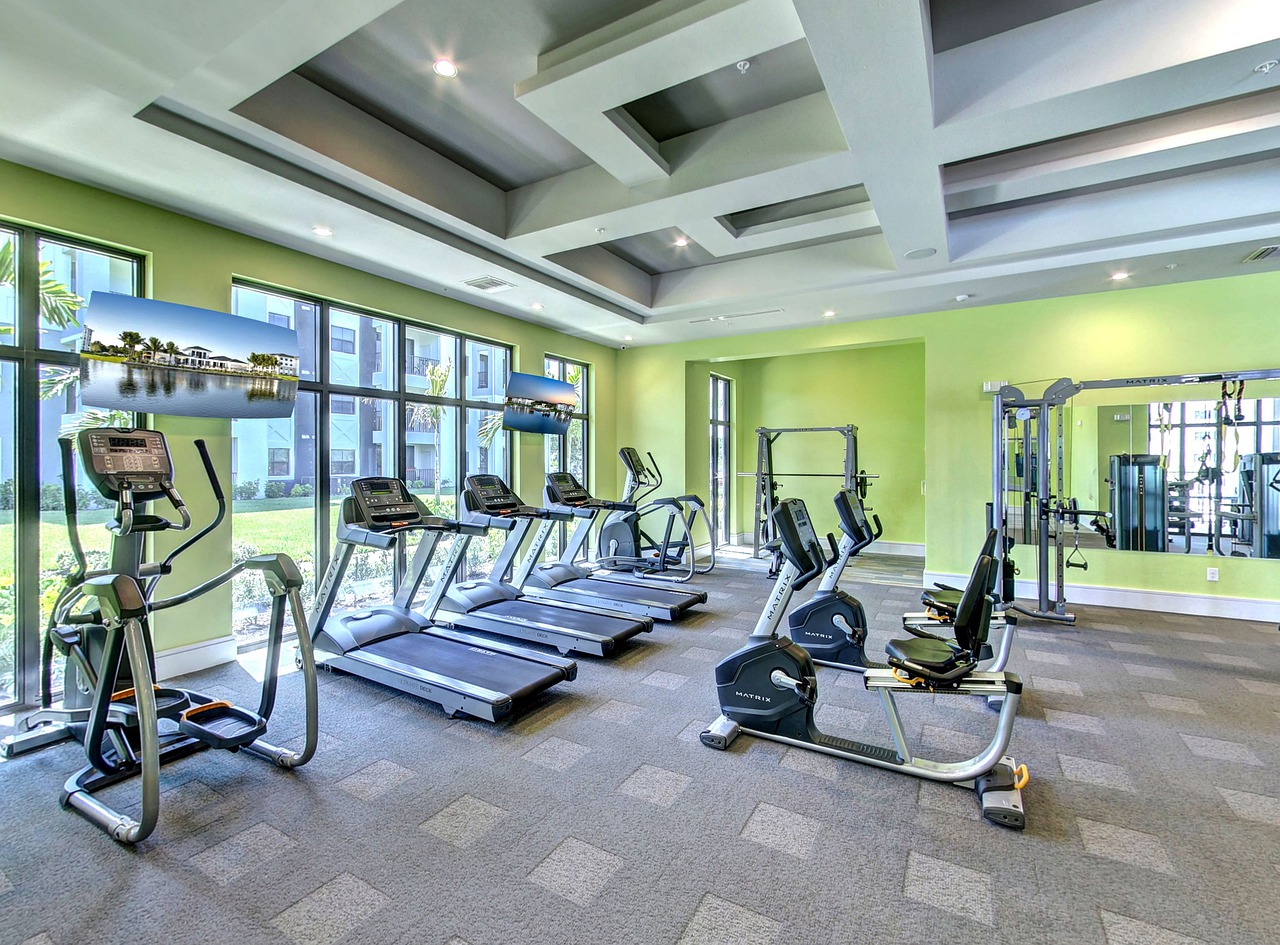
Monday 15 February has long been announced as the next review date for the imposed Coronavirus measures. But, until now, nobody was certain in which way – if any – measures would be relaxed.
Under unofficial plans, from Monday 15 February Croatian cafes will be able to serve coffee and drinks to be consumed on outside terraces, with strict epidemiological guidelines in place.
Croatian cafes and gyms opening on 15 February will be conditional on a continued downturn in infection numbers and the absence of new Coronavirus strains appearing in Croatia
The re-opening of Croatian cafes and gyms is wholly dependent not only on the continuing downturn in numbers of infected but also on the condition that new strains of Coronavirus - specifically those first detected in the UK and South Africa - do not appear in Croatia between now and then.
"If the indicators are good, if the numbers go down, we will certainly not be reluctant to react,” Deputy Prime Minister Davor Božinović said, regarding the 15 February review, “our aim to strike a balance between everything - with an emphasis on health care - has brought us to a position where Croatia has the least stringent measures in the EU."
Coronavirus infection numbers in some other European territories remain at an alarmingly high rate, although a corresponding relaxation in measures for some regions of Italy was similarly announced over recent days. This is the second time since the start of the pandemic that stricter measures imposed by the Croatian government – and a widespread public observance of these measures and other guidelines - have successfully produced the intended results.
Beloved Zagreb Music Store, Croatia Records, to Close Doors
February the 2nd, 2021 - A beloved Zagreb music store, Croatia Records, located on Bogoviceva in the very heart of Zagreb, is set to close its doors after 57 long years of work.
As Poslovni Dnevnik writes, the oldest record store in this area is closing, and one of the cult locations in central Zagreb is quietly going down in history. This is the story of the former Jugoton, today's Croatia Records - a much loved Zagreb music store which opened its doors back in 1964, seventeen years after the founding of the first record company Jugoton in the former Yugoslavia.
For more than half a century, this Zagreb music store has been and remains the first address for everyone who wanted to buy a new record and listen to it at home. It was a place where finally everyone could see their idols up close. It was opened at a time when Croatia already had its first big music star - Ivo Robic, whose first concert album "Jubilee Concert" was released on vinyl in 1965 - and the nearby hotel Dubrovnik began to take shape as we know it today, reports Jutarnji list.
Jugoton carefully expanded its distribution network, so after Zagreb, the Belgrade and Rijeka music stores opened their doors (in 1969), and since 1972, all major Yugoslav cities had such stores. Records and cassettes produced in Zagreb's Dubrava have since quickly reached young people who could immediately see, experience and buy them, without waiting for their relatives in America or Italy to send the goods over.
For almost fifty-seven years, this Zagreb music store in Bogoviceva was the first and direct connection to discophiles and those who became passionate record collectors with the first record they bought, and the store quickly became a gathering place for the musicians themselves.
''Oh but of course! I used to be there with Gabi Novak and Zdenko Kovacicek,'' recalls Tereza Kesovija, who, as has been since learned from Croatia Records, was the very first star to sign an album for her fans at a promotion in Bogoviceva. Kesovija has stated that she will be sad to see this Zagreb music store go as the end of an era draws close.
For the latest travel info, bookmark our main travel info article, which is updated daily.
Read the Croatian Travel Update in your language - now available in 24 languages.
Croatian Hotel Owners Look Past Easter to 2021 Summer Season
February the 2nd, 2021 - Croatian hotel owners have their sights set past Easter, focusing on the upcoming 2021 summer tourist season which is hopefully miles better than the disaster that was 2020.
As Poslovni Dnevnik/Marija Crnjak writes, while in normal years, Croatian hotel owners would have their hands full with looking for manpower for the summer season ahead and polishing up seasonal facilities to start work on Easter weekend or on May the 1st, right now ,most of them don’t know when they can open their doors at all.
Although a few weeks ago they announced through the Croatian Tourism Association that they were ready to open from Easter onwards, in the meantime, a good part of the market has entered a total closure due to mutated strains of the virus appearing and vaccination not quite going as planned.
As mentioned above, the process of procuring vaccines that was supposed to speed up the end of the pandemic has stalled, which also affects the enthusiasm of guests, so the concern is currently greater than it was about a month ago.
The biggest dilemma which lies in front of Croatian hotels is the current need to weigh up the cost-effectiveness of opening their doors, which is a criterion to study even in the best years. Easter falls early in 2021, at the very beginning of April, and as such they need to figure out how to bridge it until May the 1st and then until Pentecost at the end of May, when the swimming season is already starting.
Tourist consultant Sinisa Topalovic warned the public about this last week, and as we reported, he believes that tourist traffic in the pre-season in 2021 is illusory to expect.
There are no concrete plans yet...
Therefore, Croatian hotel owners have already focused on the summer season in terms of their marketing, for which they're offering discounts and various combinations to attract guests to push the button right now and book their holidays for summer. In the meantime, they are trying to fill the facilities that are intended for year-round operation and are open despite very low tourist traffic.
Valamar currently has only one hotel open, Diamant from Porec, and two camping resorts in Istria and Krk. On the eve of Easter, they plan to open only three of their hotels, Porec's Marea Suites, Padua on Rab and President down in Dubrovnik, as well as eight camps in Istria and Kvarner.
Other facilities are planned to open successively, depending on the state of booking, as is the case with Plava Laguna/Blue Lagoon, which has three hotels open, Molindrio in Porec, Melia Coral in Umag and Bonavia in Rijeka. At the moment, their traffic is mostly made up of sports groups, but they have no concrete plans to open in the spring yet, their plans to open depend entirely on demand.
The company Sunce Hotels encourages its guests to direct their summer booking where they will receive a guarantee of the best offer, now they have a special offer in which they offer a 35 percent discount on early bookings. On their website, the calendar only opens from April the 30th, and they decided to start work on May the 1st, but only in part of the hotel. Solaris has opened for early booking, but only for mobile homes and villas.
The smaller Croatian hotel owners are the most flexible
Due to the nature of the business, small hotels are somewhat more flexible in their decision-making, as it is easier to fill 10 rooms instead of 500 of them.
The Istrian wine hotel San Canzian recently informed its guests on social media that it opens the season on March the 19th, Boskinac from Pag is urging its guests to book their places now, because they have already sold out all the rooms for Valentine's Day.
For the latest travel info, bookmark our main travel info article, which is updated daily.
Read the Croatian Travel Update in your language - now available in 24 languages.
Is Continued Liberalisation Key to Croatian Bus Industry Comeback?
February the 2nd, 2021 - What can be done to help the Croatian bus industry recover and get back to the way it was in pre-pandemic times? Further liberalisation appears to be the key.
As Poslovni Dnevnik/Darko Bicak writes, the economic consequences of the ongoing coronavirus pandemic have been most strongly felt by companies in the services sector, especially passenger carriers, as there is neither interest in travelling at all, nor are many countries allowing anything but essential domestic or international travel.
As a result, many parts of Croatia, especially rural areas, are almost completely cut off from larger centres and the rest of the country.
In order to make the situation more bearable, let's not forget that in a few months there will be local elections in which new mayors and county prefects will be elected, and the Croatian Association of Counties (HZZ) has launched an initiative to help the Croatian bus industry and regular bus carriers maintain their intercity lines.
The Ministry of Maritime Affairs, Transport and Infrastructure is required to play a more proactive role and change the existing regulations in order to be able to pass more money through multiple models as an incentive to the Croatian busy industry and their regular carriers.
One of the loudest among them is Darko Koren, prefect of Koprivnica-Krizevci County, who says that the situation with transport in their area has heated up.
"We're in constant conversation with carriers who are going through difficult times due to the pandemic-dominated circumstances and have to cancel lines, especially those from rural areas due to economic unprofitability. Their sustainability is mostly based on the transport of students, which has now been reduced, and you know that, for example, Koprivnica-Krizevci County leads in Croatia in terms of co-financing transport with about four million kuna per year. It's time to finally resolve this issue,'' Koren said.
The problem of school transportation
A special problem lies with school transport because the contracts between the counties and the Croatian bus industry, ie their carriers for this school year were supposed to be signed by November the 30th last year, but due to the coronavirus pandemic it was all postponed.
"Concrete matters haven't yet been resolved. Carriers are now in difficult situations. They've been maintaining unprofitable lines for years, they're recording big losses, it's getting harder. I hope that we will have it resolved very soon,'' said Hrvoje Mestrovic, President of the Association of Public Bus Operators.
Perhaps the biggest problem lies with the previously wildly popular FlixBus platform, which is mainly focused on international travel - back in pre-pandemic 2019 they reported 62 million passengers, of which 1.4 million were in Croatia, and last year it was halved to just 30 million, mostly in Europe, with far greater decline seen in this country.
Now they say that as a vital part of the mobility sector, it is in their interest to provide all its users with an easily accessible, safe and sustainable mode of transport and therefore support all efforts of the Croatian Government and science to combat the pandemic and speed up economic recovery."As part of the transport industry, especially because our business model is based on a partnership with many Croatian carriers, we share the same challenges with them.
Accordingly, we support all initiatives in which, in addition to public health, the jobs of both employees in the transport industry and all employees in Croatia are protected. We welcome any action aimed at finding a quality solution to preserve vitality and enable the recovery of the Croatian bus industry. However, it's important to point out that this crisis has shown up all the shortcomings of the closed market and clearly indicated that for the recovery of the Croatian bus industry it's necessary to continue the liberalisation process and develop passenger transport so as to ensure equal conditions for all carriers,'' stated Ante Grbesa, director of the FlixBus CEE South region.
For the latest travel info, bookmark our main travel info article, which is updated daily.
Read the Croatian Travel Update in your language - now available in 24 languages.
Croatian Adriatic Ports in Good Position, Online Trade Growing
February the 2nd, 2021 - Croatian Adriatic ports continue to be in a decent position despite the ongoing coronavirus pandemic and the related economic woes. Online trade is also growing, which is something we've seen massive increases of throughout the duration of the pandemic.
As Sinisa Malus/Poslovni Dnevnik writes, container transport by rail between China and Europe has greatly increased when compared to last year. It is known that the New Silk Road has been used less frequently for freight transport for years, but it has only recently become a current option due to the new situation in the transport of goods from the Far East, writes Sinisa Malus for SEEbiz.
In terms of rail transport, 40-foot-tall freight DRY containers are used for the transport of general cargo, and various machinery, machines or parts of machines, electronic components, metal and plastic products and the like are mostly transported.
As far as maritime transport is concerned, it is still the most popular freight option because it is the most affordable of all. It offers a wide range of transport services from full (FLC - full load container), groupage containers (LCL - less container load), as well as special special transport solutions tailored to the needs of all users.
For Central European countries such as Slovakia, Austria or Hungary, Croatian Adriatic ports like Rijeka, and that of Koper on the Slovenian side, are extremely important. If we take the Hungarian capital of Budapest as an example, we can see that the distance from Koper or Rijeka is only 570 kilometres, while from Hamburg it is as much as 1,200 kilometres. Thus, goods from Croatian Adriatic ports and indeed those of Slovenia reach their end destination much faster.
Carriers continue to count on the development of Rijeka's transport route and the expansion of intermodal services to third countries.
This has also been confirmed by the cargo partner. They say that although the volume of transport recorded a slight decline compared when to the previous year and despite the overall challenging market environment, the company can call last year a success thanks to its customised emergency solutions and flexible alternatives. One of them is the Adria Priority Express service, transport services from Asia to Adriatic ports. According to the logistics supplier, transit times from the main ports of the Far East to these Adriatic ports are on average 5-8 days shorter than to North Sea ports such as Hamburg or Bremerhaven.
''It can be noticed that, depending on the type of goods, we can talk about an increase in turnover following the growth of online trade in Croatia and the immediate region, consumer goods, sports equipment, food supplements, technical equipment, etc,'' they explained from this company.
Statistics also confirm the growth of container traffic. The Jadranska vrata compan recently reported on a new record at the Brajdica container terminal in the port of Rijeka - 300,000 container units (TEU) were transhipped last year. This new record, as they point out, gains even greater significance when viewed in the context of 2020 in which almost all fields were deeply affected by the devastating coronavirus pandemic.
The company Jadranska vrata was founded way back in 2001 as a subsidiary of the Port of Rijeka, and ten years later, in 2011, a strategic partner, International Container Terminal Service Inc., joined the company. (ICTSI). That Philippine company holds a 51 percent stake in AGTC and the Port of Rijeka it boasts a 49 percent stake.
''If there are no major market shocks such as the current situation (lockdown, lack of containers, lack of passenger flights), we expect market recovery and slight growth,'' concluded the cargo partner.
Currently, the market is experiencing increased demand for imports, which has resulted in the rapid filling of shipping capacity. In other words, it takes time for containers from European ports to physically return to China, in order to be operational again for the import transport of goods. For these reasons, as well as breaks for the Chinese New Year, the transport of goods by sea, as the most economically viable option, has been practically overbooked until March this year.
The year ahead should bring the outcome of the future of the container terminal in Rijeka, after the Governing Board of the Port of Rijeka Authority suddenly decided to cancel the international tender for the selection of concessionaires at the end of 2020.
Binding bids were received for the tender, one from a Chinese corporation consisting of Ningbo Zhoushan Port Company Limited (which manages the largest port in China and the world), Tianjin Port Overseas Holding Limited and China Road and Bridge Corporation (the company that is building Dalmatia's Peljesac bridge), and the consortium consisting of APM Terminals (a subsidiary of the shipping giant Maersk) and Enna Logic (part of the Croatian energy and logistics concern PPD Group).
The decision to annul will further stretch the already too long strip of about 400 metres long operational shore, whose construction took a full seven years (almost 15 years have passed since the first, unsuccessful attempt to build it), and about 120 million euros have been invested in it so far.
The construction of the first phase of the terminal was completed back in June 2019. The concessionaire is expected to invest more than 150 million euros in equipping the terminal and upgrading another 280 metres of operational shoreline and putting them into operation, which would more than double the capacity of Rijeka as a container port.
For the latest travel info, bookmark our main travel info article, which is updated daily.
Read the Croatian Travel Update in your language - now available in 24 languages.
Digital Nomad Life in Croatia: Ian & Amy Anderson, from Florida to Split
February 1, 2021 - As the number of digital nomads rises globally, some are choosing to spend some of their time in Croatia. Continuing our TCN series meeting international digital nomads calling Croatia their temporary home. Meet Ian and Amy Anderson, from Florida to Split.
Searching for a coastal European town with all the amenities of modern-day living, this digital nomad couple from Tampa, Florida found the perfect place to work. This AirBNB had everything that they were looking for and best of all, it was located in an ancient Croatian palace. Take a peek into their digital nomad lifestyle and learn some tips on how you can become one too. Say hello to Ian & Amy Anderson.
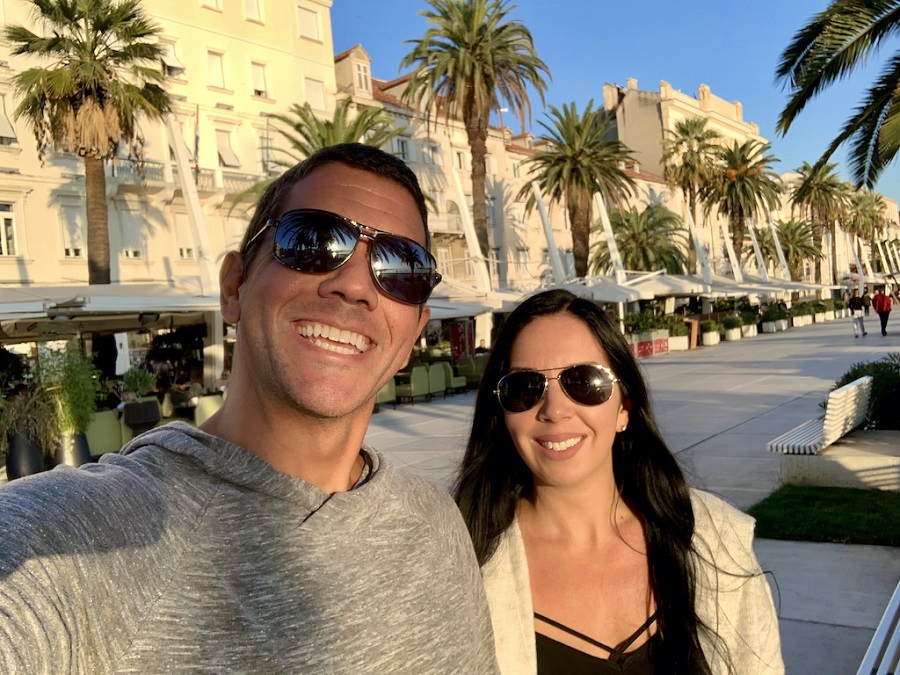
Tell us a bit about you and your work.
We both grew up in Massachusetts (USA) about one hour south of Boston in a city called New Bedford. Like most people, our twenties were filled with jobs we hated. But one good thing was that we both happened to be working at one of those awful jobs at the same time. We started dating in 2001 and by 2009 we had gotten married.
At that point in time we couldn’t take working jobs that we hated anymore and we finally got the courage to venture out into the world of self-employment and started our own web design company. It was one of the scariest things we had ever done, but it turned out to be one of the best decisions that we ever made.
Eleven years later, we’ve created a thriving web design company that creates websites for small to medium-sized businesses in the USA. The best part is that we get to do it together, from anywhere in the world. We are really lucky because we don't just love each other, we actually like each other too.
Pros and cons of working remotely?
One of the biggest pros of working remotely is the freedom and flexibility that this lifestyle offers. Like any other job, some days can be stressful and make you want to pull your hair out, but the good days far outnumber the bad. At the end of the day, our clients don’t care how we get the project done, they only care that we complete the project on time and deliver a high-quality end result. This means we don’t have to work a set “9-5” schedule.
Because (for the most part) we are able to choose our own schedule, we don’t have to wake up to an alarm clock. Working remotely also means that we don’t have to drive to an office every day, which saves both time and money. We don’t have to sit in a cubicle for eight hours a day and we have zero office drama.
Working remotely not only allows you to work from the comfort of your own home but also from anywhere in the world... such as Croatia! Once you experience this lifestyle, your days will stop being black and white copies of the day before and they will come alive with bursts of color. Your life will finally have some flavor. If you choose to add the traveling aspect to working remotely, you’ll get to see gorgeous places, have conversations with people from other cultures and eat interesting food in faraway places. You’ll become the exotic “International Traveler” in your family!
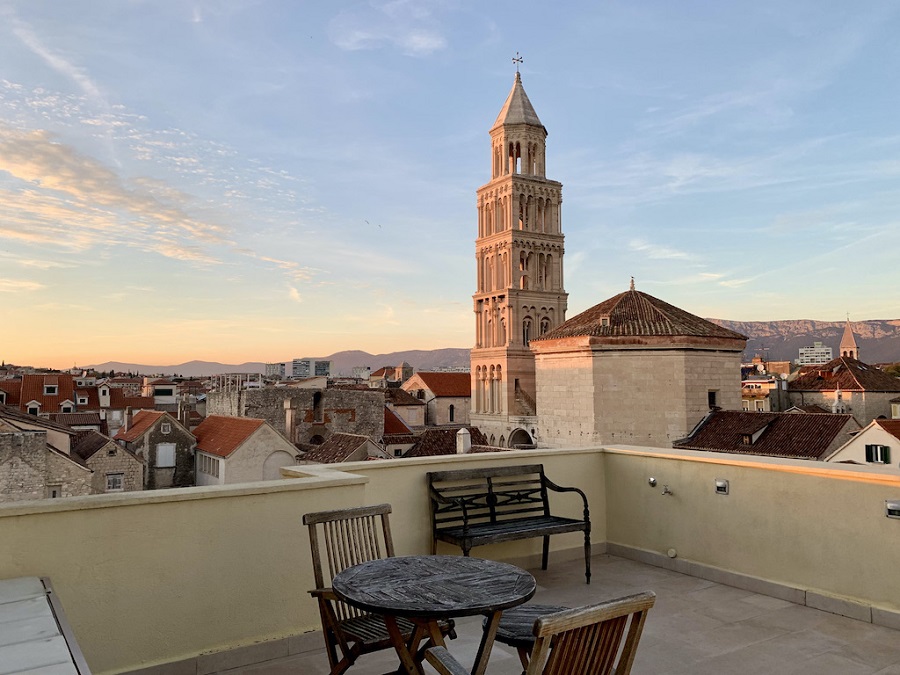
Now onto the not-so-good things.
Remember being a kid on Christmas morning? You would jump out of bed, run to the brightly colored tree in the living room, grab the biggest present you can find and yell out “Mom, can I open my presents now? Pleeeeeeeese?”
But it wasn’t time to open presents just yet and you were told to wait.
Devastated, you rolled your eyes and let out a “uuugggggghhhhhh!” as you sulked your way into the kitchen to get some cereal.
As digital nomads we feel like this on most days.
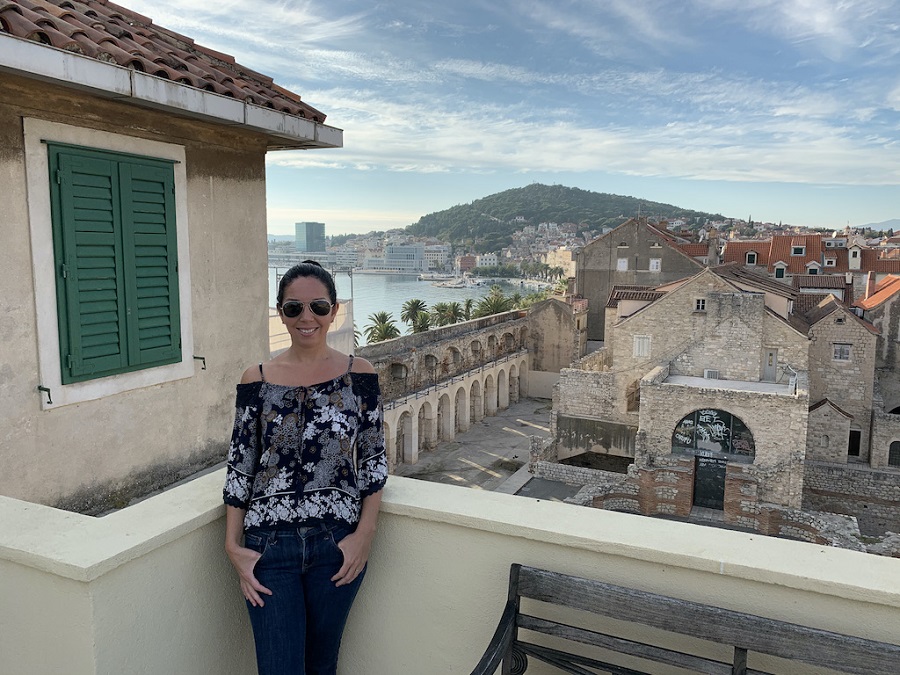
We know that there is an amazing city just outside these AirBNB walls but we also know that we can only go out and explore it once we get all our work done. We can’t let our business suffer because we want to go outside and play. It’s like being a kid who is told to wait to open their presents, except now the presents are new cities waiting to be unwrapped. And our work is like a strict mother telling us that we have to wait to open it.
Another downside is that we also miss our family and friends. When you are a “digital nomad” you miss out on things like family dinners, holiday gatherings and birthday parties. Sure, you can make FaceTime appearances for a few minutes at each event but it’s not the same as actually being there.
Like anything else in your life, you have to make sacrifices in order to get the things you really want.
You can’t fly a plane while keeping one foot on the ground.
How did you choose Croatia and specifically Split?
From August to November 2020 we were “digital nomading” in the Caribbean, enjoying the endless sunshine and sandy beaches of Aruba. But you can only stay in Aruba for 90 days as a tourist and that window was soon closing for us. We needed a new country to visit but as US Citizens traveling during a global pandemic, our options were limited.
While researching which countries US Citizens could travel to, we found an article in Forbes magazine that featured Croatia. It sounded like an interesting country, so we looked more into the top travel destinations within Croatia.
One of the locations that immediately caught our attention was Split.
It seemed to have an old-world charm perfectly blended with modern-day amenities. We watched YouTube videos that explored the labyrinth-like alleys of Diocletian's Palace, the smooth cobblestone streets filled with lots of artisanal shops and the many cafes and restaurants located along the waterfront. It seemed to have just about anything that we would want or need (all within walking distance) plus gorgeous palm trees right along the Adriatic Sea.
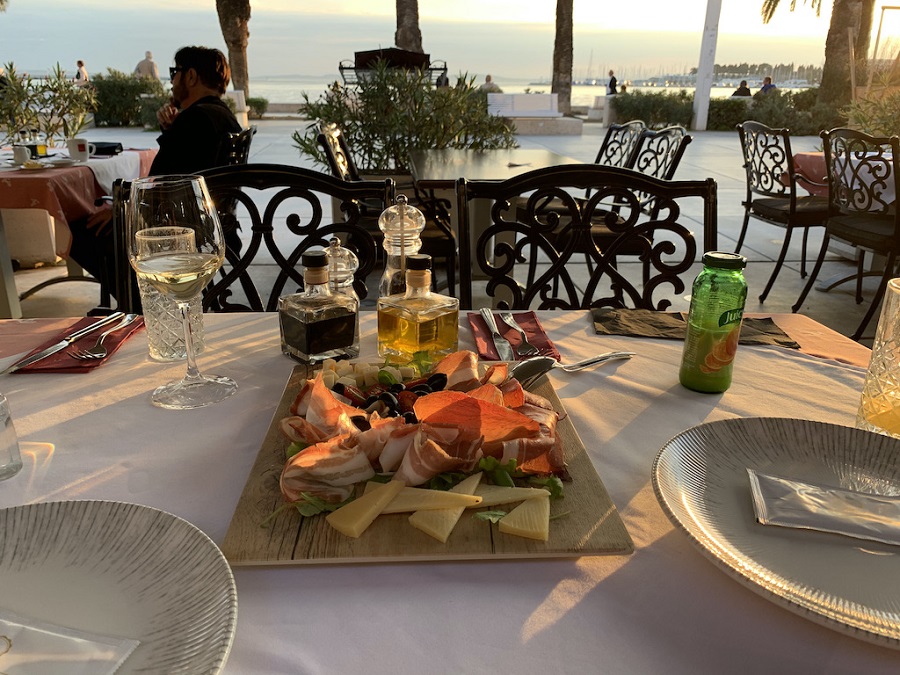
Once we arrived in Split and saw the majestic views, it was love at first sight.
It was even better than what we saw in the YouTube videos! We were also pleasantly surprised that overall Split was reasonably priced and best of all very safe!
Another great thing about Split is Marjan Park. Just to the west of the palace walls there is a large elevated area of trees. If you walk up the southern side pathway and you turn around, you’ll see something you’ll never forget.
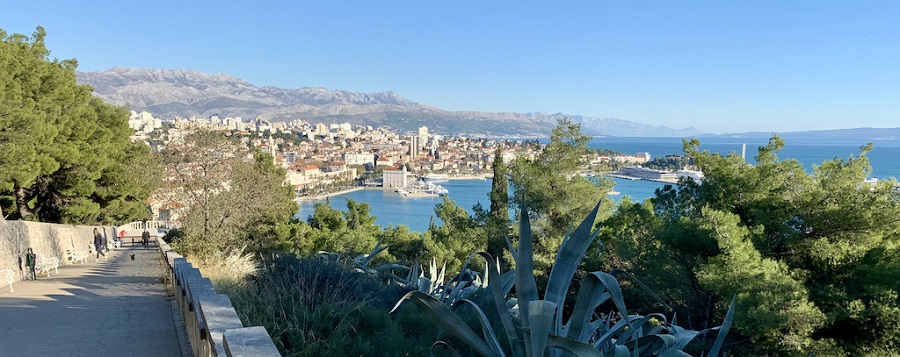
In one breathtaking glance, you’ll see all of the ancient architecture with the cream colored walls and orange roofs, the perfect blue sea and sailboats, the inspiring green trees and the faded mountains far off in the distance.
It’s one of the most spectacular views we have ever seen.
What’s important for a destination to offer to be compatible with a digital nomad lifestyle, apart from good WiFi?
While everyone has a different opinion of what is important for a destination to offer, everyone can agree that safety is very important. When traveling to a new place somewhere in your home country or a new country abroad, it’s comforting to know that you can walk around (even after the sun sets) and have peace of mind that you are safe. And that’s one of the many things that we love about Split. It is very safe at all times. We would often venture out for a late-night stroll down the Promenade or through Diocletian's Palace and we always felt safe.
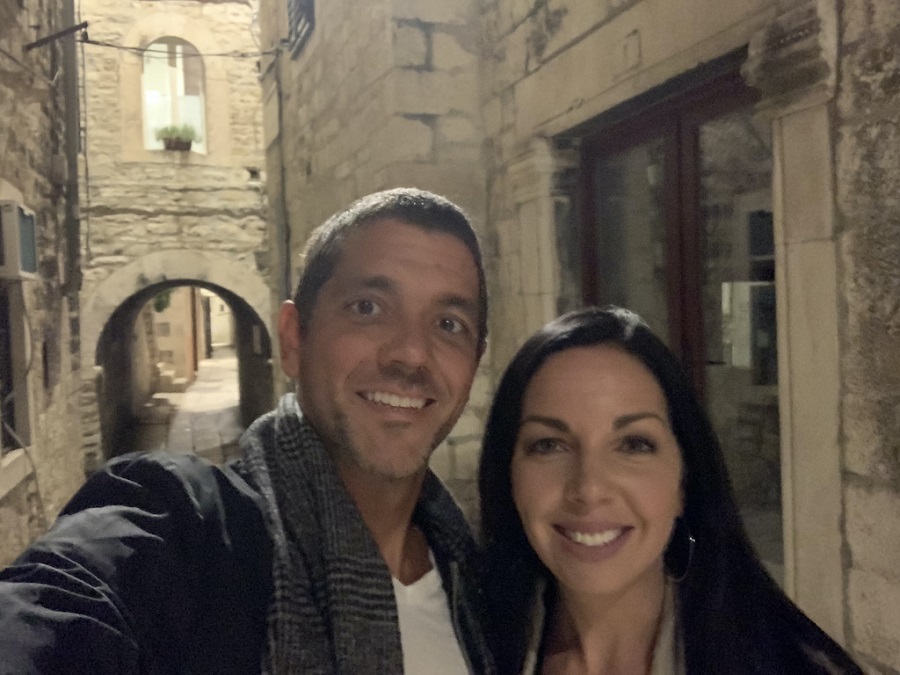
After safety, the location of where you’re staying is the next most important thing to consider. For us that means close proximity to things like beaches, restaurants and historical landmarks, as well as essential services like grocery stores and pharmacies. The closer we are to those things, the less likely it is that we’ll need to rent a car, which saves us from an unnecessary expense. Another great thing about Split is that even when we wanted to venture out farther than we could walk, Uber is available in the area and there are also bikes and scooters available to rent.
While it’s not a deal-breaker for us if a destination doesn’t offer food and grocery delivery, if they do it’s definitely a bonus. After all, us digital nomads still have a business to run which sometimes means long workdays and not having time to run out to the grocery store. So a grocery delivery service can come in handy… and yes, there are companies in Split that offer this service, which made things very convenient on days we weren’t able to venture out.
What’s your view on the future of remote work?
When COVID-19 first disrupted our species, businesses around the world were forced to make their employees work from home. At first this was a chaotic change but after a few months companies realized that their employees were still able to get the work done remotely. They also noticed employees seemed happier as a result of not having to commute every day and no rush hour traffic!
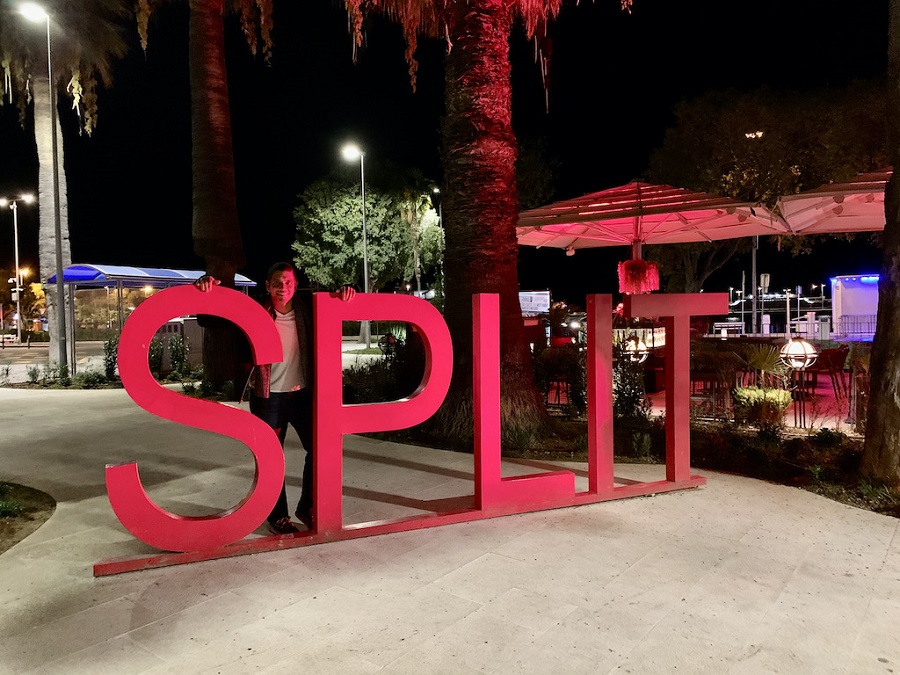
COVID-19 has caused many companies to re-examine their business model. They are starting to see remote work as a way to not only have happier employees but also lower their overhead costs, creating a win-win for business owners. Happier employees tend to be more productive with their work and are also more likely to continue to work for a company. And the more employees that a company is able to have work remotely, the more likely it is that they can downsize their office space and in some cases completely eliminate it, which will greatly reduce their expenses.
So we think that as time goes on the ability for people to work remotely is only going to grow, making it an ideal time for anyone who is looking to travel to become a digital nomad.
Do you have any advice for people looking to make the transition to digital nomad life?
Lower Your Expenses
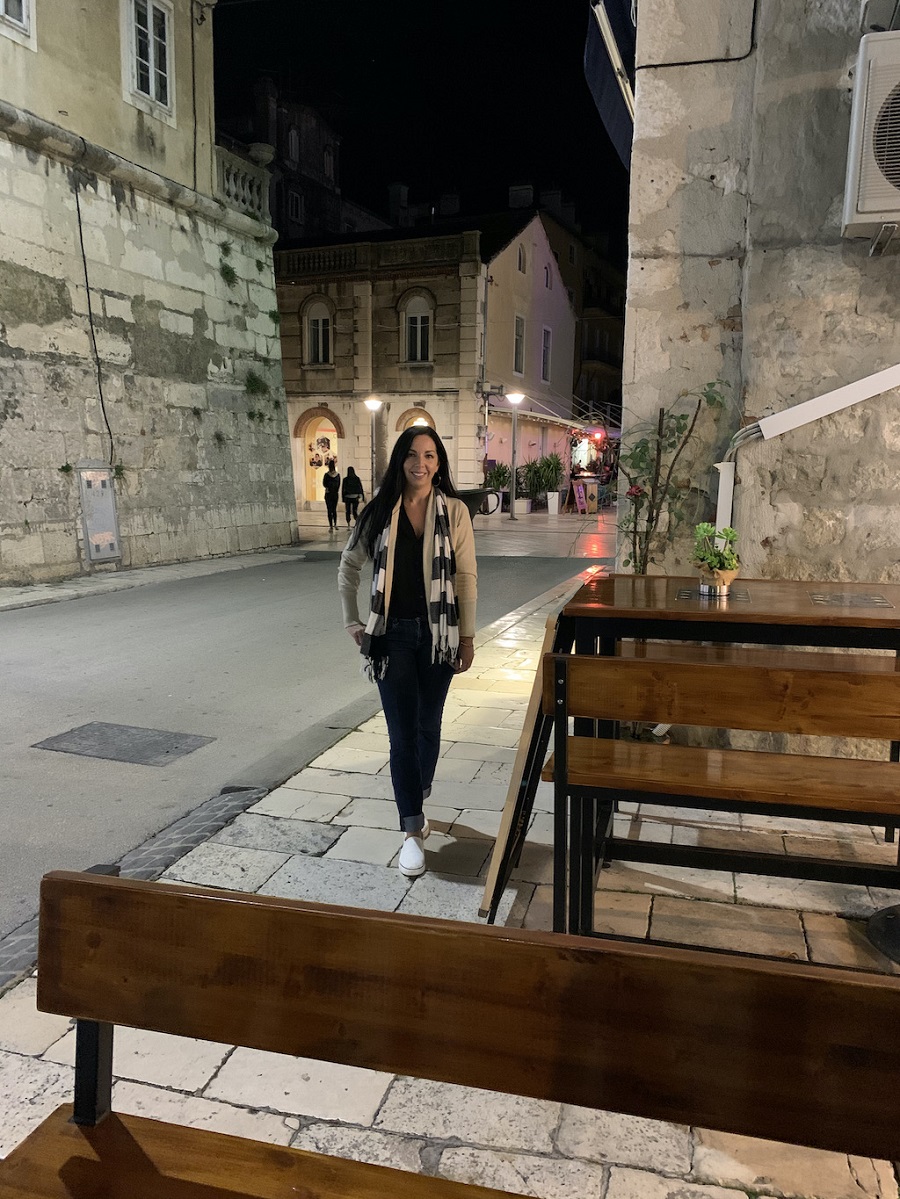
Before you start your journey as a digital nomad see if you can lower your expenses. Would you believe that we’re actually saving money while travelling the world (without giving up the lifestyle that we’re accustomed to)? The reality is that this lifestyle is allowing us to travel the world while saving money that we can then use for fun adventures. Before becoming digital nomads, we typically would go on one or two week-long vacations each year because that’s all we could afford. We realized that there is a lot more to see in the world and at that rate it was going to take us many years to see it all. And honestly, how much can you even learn about a place when you’re only there for a week? So how did we actually lower our expenses? We hired a property manager and he got our house in Tampa rented. We were able to rent it for more than our mortgage (which actually puts some extra money in our pocket each month). With our house rented that means we no longer have any utility expenses (water, electric and internet; it’s all paid for by our tenant)... which saves us hundreds of dollars each month.
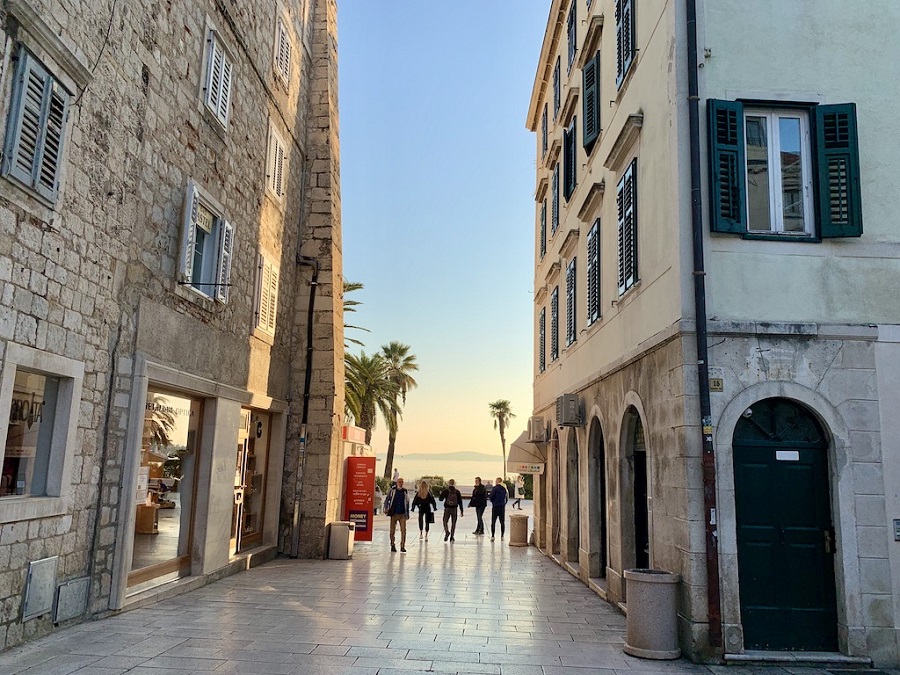
Since we knew we were going to be travelling long term, we sold our car which means no more car payment or car insurance, saving us even more money.
These are just some of the ways that we were able to cut down our expenses. Obviously everyone’s personal financial situation is different, but the reality is there are lots of ways to cut down on your expenses, all while getting to explore new places around the world. Change Your Schedule
Create a work schedule that revolves around meeting a deadline. This allows for more flexible days. For example, instead of having to be at your laptop at a certain time every day to complete your work, change your arrangement to get the work completed by a certain date. This is how our business operates. When we get a project, we tell the client what day we will have it completed. Not only does this type of business model give you flexibility to create your own schedule, but it is very helpful when you are in a vastly different timezone than the people you are working with. Most of our clients are located in the East Coast of the United States and Split is six hours ahead of that time zone, so if we had to be available to work at the normal business hours of our clients, the time zone difference would make it very challenging. If you’re an employee of a company that requires you to do your work / be available on a specific schedule, working remotely from a different time zone can be challenging, but not impossible. If that’s the case, we recommend that you be mindful of the timezone when you’re selecting a destination and find a place that compliments your work schedule.
Try To Make Yourself Smile
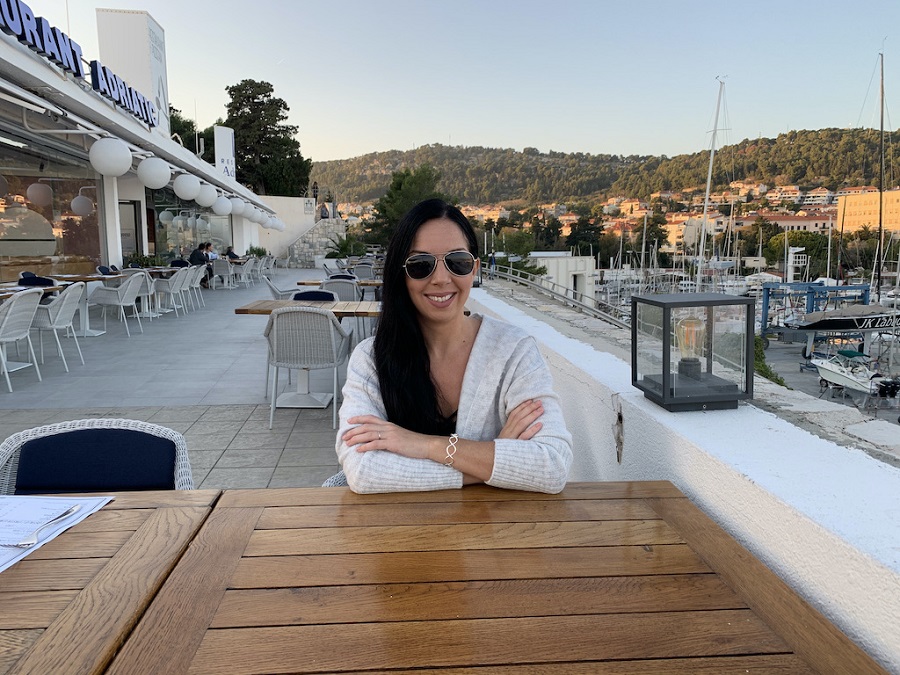
If you’re even a little bit interested in this type of lifestyle, do it! Give it a try on a short term basis and see if it works for you, there is no rule that says you have to do it forever.
Even if it isn’t feasible for you to work remotely with your current job, remember there has never been a greater opportunity or demand for remote work then there is right now. You may be surprised at the remote work opportunities that are available.

Here is some final advice on making this decision (actually any decision): do the thing that will make your 90-year-old self look back and smile. Most people tend to look back in life and regret the things that they did not do, rather than the things that they did do.
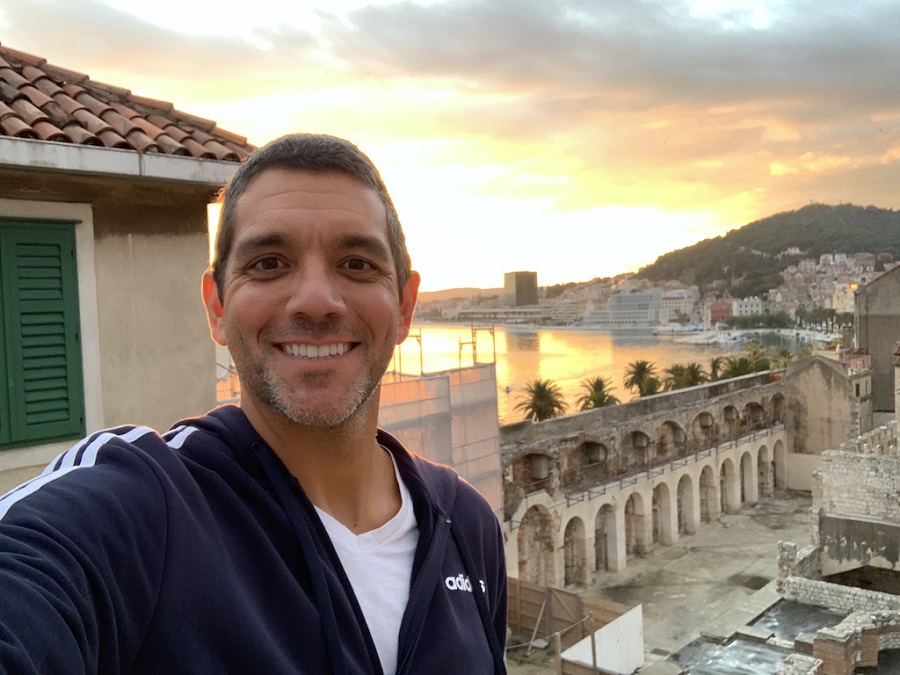
Follow these digital nomads on Instagram:
Amy Anderson https://www.instagram.com/unleashingamy/
Ian Anderson https://www.instagram.com/ianrobertanderson/
Are you a digital nomad in Croatia who would like to be featured in this series? Please contact us on This email address is being protected from spambots. You need JavaScript enabled to view it. Subject Nomad
Read more: Meet Melissa Paul, Owner of Croatia's First Digital Nomad Visa.
Minister Says Infrastructure to Be Ensured for Croatia to Move to All-Day School
ZAGREB, 1 February 2021, 2021 - Education Minister Radovan Fuchs said on Monday that it was necessary to ensure infrastructure for introducing fill-day schooling, which is Croatia's objective in the coming period.
The minister, who was visiting Varaždin County, said that the €22 billion EU Recovery Fund opened room for education and provided great opportunities for the construction of schools in Croatia.
"The concept is to move towards all-day school. That requires a certain infrastructure to be built," said Fuchs underscoring that at the moment 40% of schools in Croatia work in two shifts, due to a lack of place.
Introducing all-day school would significantly increase the number of active hours children spend in school, said Fuchs and added that compared to other countries in the EU, children in Croatia spend the least time in lessons at school.
During his working meeting with Varaždin County Prefect Radimir Čačić, Minister Fuchs said that they defined future projects by the ministry.
The ministry's state secretary, Tomislav Paljak, who accompanied the minister during his visit to Varaždin, explained that while in the whole of Croatia, 40% of schools worked in two shifts, in Varaždin County that percentage was just four percent of schools.
"That means that 96% of schools here operate full day, which is in accordance with the state project to ensure full-day schooling for pupils," said Paljak.
Tourism Ministry Announces Campaign for 'Safe Stay in Croatia' Label
February 1, 2021 – The Ministry of Tourism and Sport will launch a campaign for the "Safe Stay in Croatia" label in mid-February, which will show tourists that Croatia applies health and safety protocols during the coronavirus pandemic.
After announcing that the Ministry was preparing a "Safe travel" label for the upcoming tourist season, Minister of Tourism and Sports Nikolina Brnjac confirmed today that they would start the campaign in mid-February.
Tourism must show adaptability and responsibility
As Hina reports, apart from tourist entities for which this label is intended, airlines, gas stations, various tourist facilities, cultural and natural attractions will also use it. The protocols will be harmonized with the recommendations of the Croatian Institute of Public Health (HZJZ). It will also include a sticker with a QR code that can be displayed in a visible place. As part of the promotion, a special website will also be launched.
The Ministry will assign and keep the labels free of charge and monitor their application with associations.
"In addition to the application of these protocols, important preconditions for achieving tourist results are a favorable epidemiological situation, a sufficient level of vaccination, and the perception of destination security. Croatia was recognized for that last year. We will continue to work on it in 2021. Due to the pandemic, the tourism sector will again have to show creativity, adaptability, responsibility, and cooperation," said the Minister.
Adherence to global standardized health protocols
Noting that the introduction of these labels is an important wheel in branding Croatia as a safe destination, the Minister expects that by Easter, it will contribute to the promotion, recalling that it is essential to continue to adhere to epidemiological recommendations and measures.
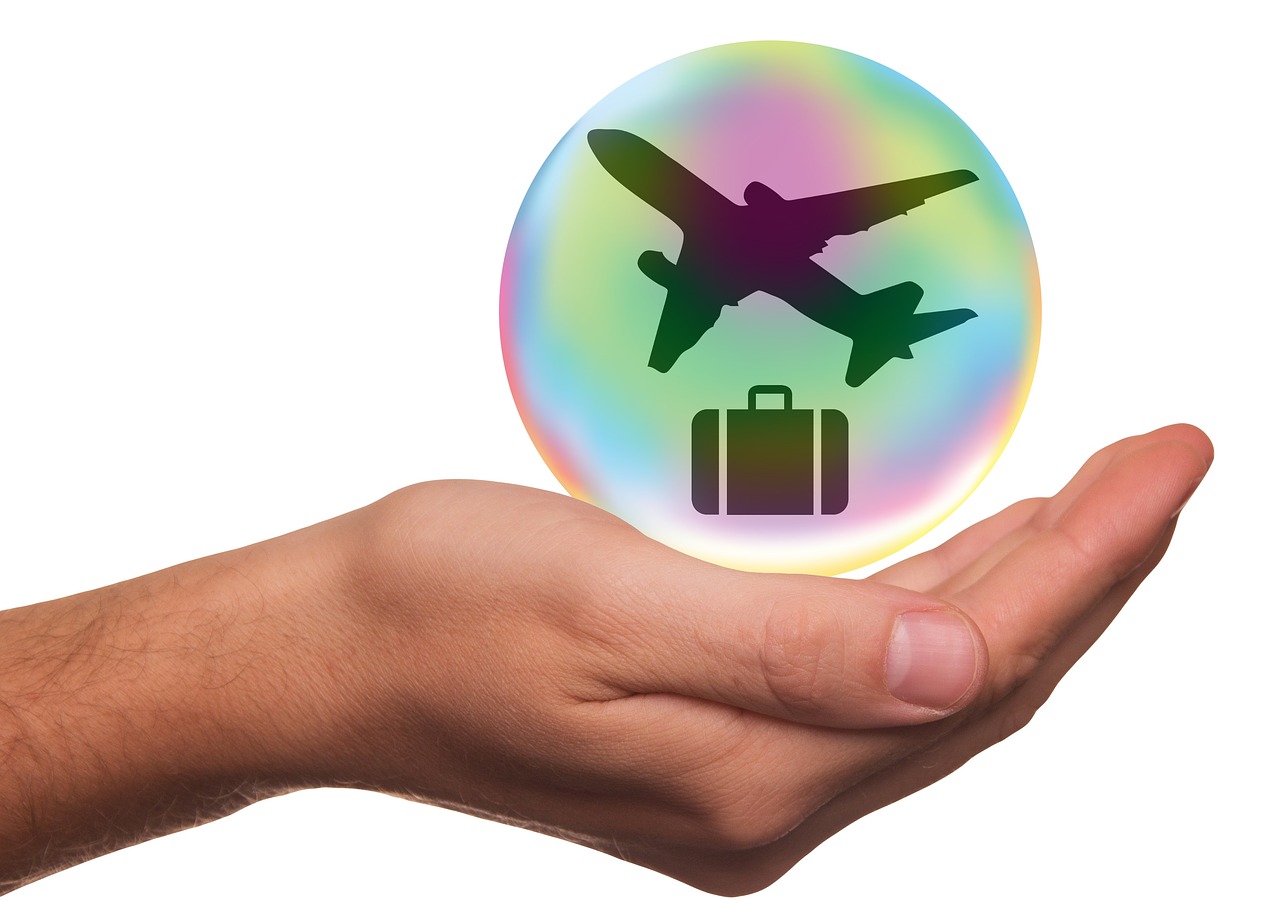
Source: Pixabay
The labels are a national upgrade of last year's "Safe Travel" labels of the World Travel and Tourism Council (WTTC) to make it easier to identify destinations and companies that adhere to global standardized health and hygiene protocols. The Croatian Ministry of Tourism and Sport immediately got involved. Harmonization of safety protocols for restaurants, hotels, family farms, holiday homes, beaches, marinas, boats, travel agencies, rent-a-car, tourist guides was one of the first tasks of the Council for the Repair and Development of Tourism.
Slow vaccine distribution not in favor of tourism trends
Minister Brnjac said that the vaccine is excellent news for tourism. Vaccination of tourism workers, for which about 70 percent of them are interested in Croatia, will play an important role in tourism promotion and results.
She says the slow distribution of vaccines and vaccinations, the new strain of the virus, and the growing number of infections in Europe and the world, are not in favor of tourism trends. It is necessary to open borders and overcome the psychological barrier of fear to travel again. It is encouraging that the EU insists on an agreement on the quantity and dynamics of vaccine delivery.
"We hope that in Croatia, as in other EU member states, a good initial vaccination rate will continue. Given the current situation with the vaccine at the EU level, Croatia's position is to insist on talks with pharmaceutical companies on the agreed quantity and dynamics of vaccine delivery," adds Brnjac.
Among other things, Croatia is in contact with representatives of other EU member states. At the moment, all EU member states want to speed up vaccination.

Source: Pixabay
Regarding the introduction of measures for tourist arrivals and border crossings, the Minister recalls that EU leaders agreed to work on a standardized form of evidence of vaccination in compliance with EU data protection regulations. This certificate would, for the time being, be used exclusively for medical purposes.
"For crossing Croatia's border, a negative PCR test result not older than 48 hours should be presented, or PCR testing should be performed immediately upon arrival (at one's own expense), with the obligation of self-isolation until a negative result. If it is impossible to test, a self-isolation measure will last for ten days. Further measures will be subject to the course of the epidemiological situation in Croatia, but also specific markets," said the Minister.
Croatia recommended destination for 2021
In the current situation, the Minister considers it's good that the people from foreign markets are eager to travel. It's even better that Croatia is mentioned as a desirable destination, thanks to the proximity to many markets and good transport links, especially road.
"This year, we expect a distinct 'last-minute' demand and demand for safe, fast, and easily accessible destinations, as well as accommodation that provides additional security such as holiday homes, on boats, in camps, and staying outdoors in nature. There are expectations from domestic tourists, who can be a driver of tourism, as well as from the cooperation with the European Association of Travel Agencies and Tour Operators (ECTAA), according to which Croatia in 2021 has the status of a selected and recommended destination," says the Minister.
She believes that a favorable epidemiological situation will be maintained in Croatia with the adherence to the measures. The tourism sector is ready to prove its responsibility and provide a safe stay this year as well. Through cooperation, knowledge, and experience, Croatia will continue to position itself as a desirable destination for foreign and domestic tourists.
For the latest travel info, bookmark our main travel info article, which is updated daily.
Read the Croatian Travel Update in your language - now available in 24 languages.



